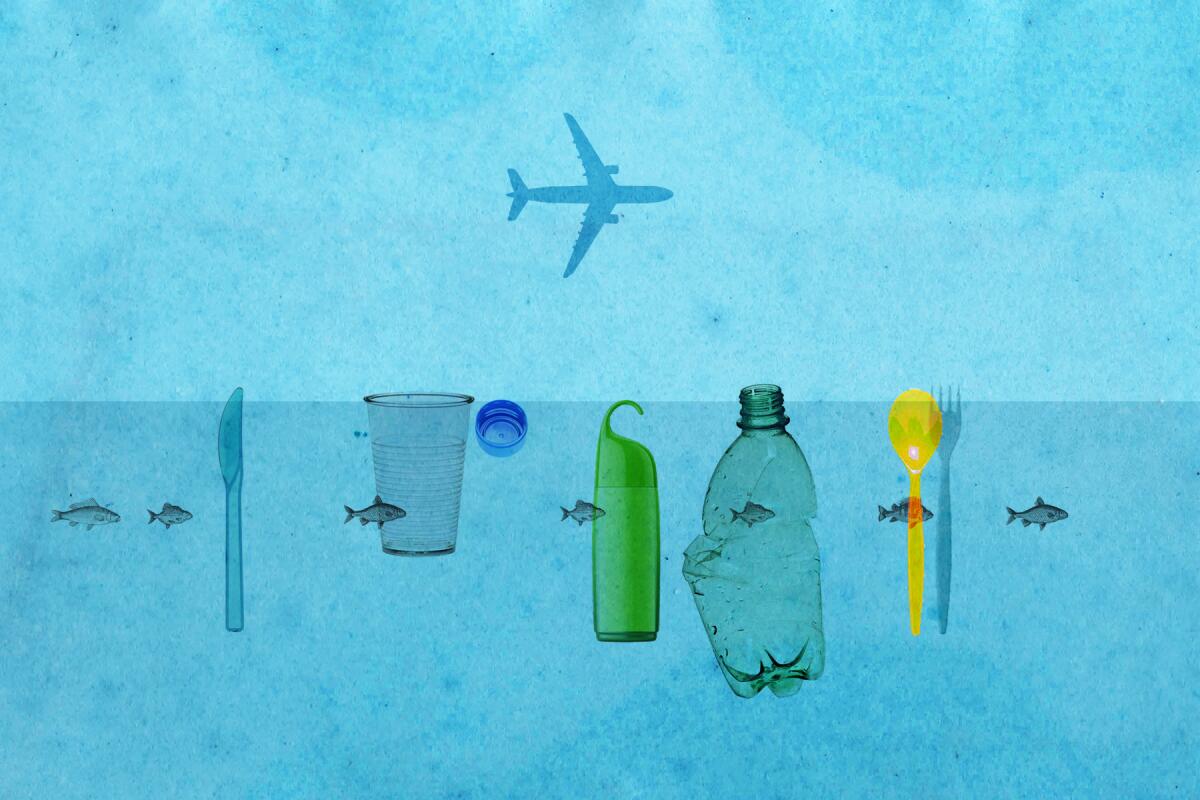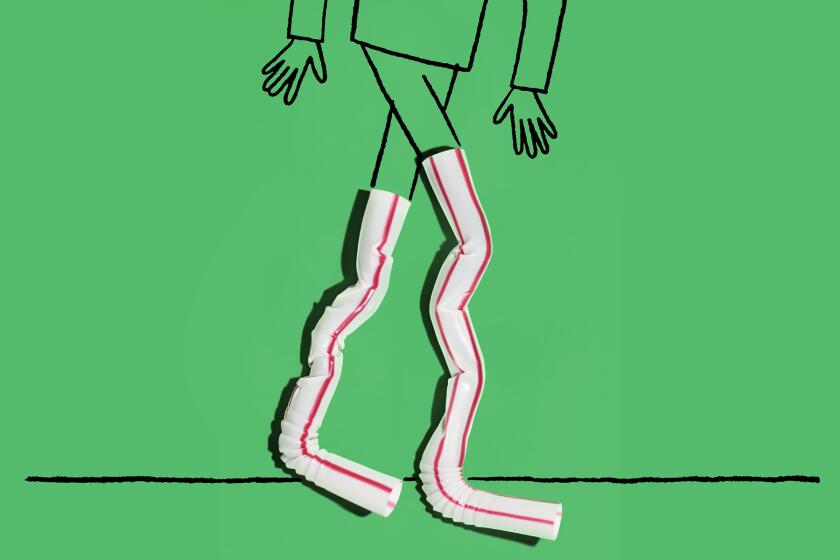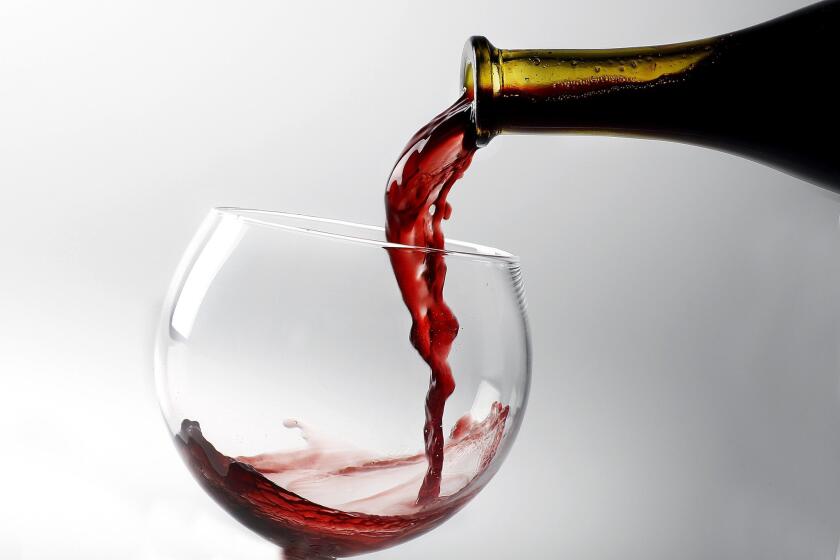In the fight against plastic use, travel providers walk the talk. You can too

Mr. McGuire was only half-right when he told Benjamin Braddock, âThereâs a great future in plastics.â
That was but one of the sardonic cinematic moments in âThe Graduate,â the now-classic 1967 movie starring Dustin Hoffman in his breakthrough role as Benjamin. Mr. McGuire (played by Walter Brooke) may have been a little overblown in his career advice, but he was right about the future of plastics.
He was wrong that it would be great.
In fact, many say itâs a disaster. âSingle-use plastics account for 40% of the plastic produced every year,â Laura Parker wrote in a National Geographic explainer on the scope of the problem. Discarded bottles donât break down â not quickly, anyway, and Parker said 8 million tons of that junk ends up in the oceans each year, killing and sickening the denizens of the deep.
But surely we arenât the culprits in this. Must be other countries where recycling isnât so hot. Sure we each ditch about 185 pounds of plastic each year, EcoWatch.com said. But if we recycle, that makes us part of the 9% who do, Parker wrote in another NatGeo story. Nine percent? If the world were getting graded on this, that would be, well, whatâs lower than âFâ?
As the universe starts to awaken to an issue thatâs taking on increased urgency, we wonder what can be done. Plastic straws are already a source of shame. San Francisco International Airport no longer allows water in plastic bottles to be sold at the airport. And hotels are beginning to reconsider those plastic shampoo, conditioner and shower gel bottles (in coming years â in California, anyway â their use will be associated with fines).
No matter how hard I tried, plastic kept sneaking its way back into my life.
These are small things in light of the enormousness of the problem. Even if an organization takes action, does it matter?
âIt matters and it doesnât matter,â said David Downie, a professor and chair of politics and environmental studies at Fairfield University in Connecticut.
âIt doesnât matter if I turn off my lights. But if everyoneâs car were a hybrid, it would matter a lot.â
Although one person isnât a parade, if 20 others join, thatâs a decent start.
Bring your own container
Who among us has not grabbed a plastic bottle of water in the airport in a desperate attempt to hydrate before getting on a desert-dry plane?
Answer: None of the people who now race through San Francisco International Airport.
In August, the airport banned the sale of water in plastic bottles. (You can still buy a flavored drink in a plastic bottle.) Youâll need to bring a reusable bottle to fill at one of the airportâs 100 hydration stations if youâd like a drink of water.
âBy now, we estimate weâve eliminated about 1.5 million plastic water bottles from entering the waste stream by replacing them with recyclable aluminum or glass,â Doug Yakel, public information officer for the airport, said in an email.
The next target is those flavored drinks âsuch as sodas, teas and juices.â
âNo set timeline on this,â Yakel said, âbut ⌠we want to [be sure] there are cost-effective alternatives available to our retailers before we make this move.â
And what of LAX? Itâs âactively looking at ways to reduce or eliminate single-use plastic water bottles,â said Heath Montgomery, an LAX spokesman. He could not elaborate.
Some companies face larger issues that one wouldnât find, say, in an airport. MT Sobek, an adventure company, planned to go plastic-free by the end of this year.
Jessica Jones, senior director of operations and partnerships for MT Sobek, said the company had made huge strides in eliminating plastics in its travel programs. Travelers bring their own reusable bottles, and the contents of its lunchboxes are not wrapped in plastic.
Because some of their trips are off the beaten track, keeping a refillable bottle cold for the thirsty trekker in the Iraqi desert sometimes strains the bounds of what is environmentally desirable. But theyâre working on that, she said.
Donât get overwhelmed. Start with doable goals in your quest to cut back on plastics.
Tiny bottles
OK, admit it. Those plastic bottles in hotel bathrooms contain products that are thrilling in a way that a bar of Ivory soap (no offense, Ivory) just isnât. Cute, small, easily transported in a carry-on and a big problem for the environment.
In October, California Gov. Gavin Newsom signed a bill that bans use of those small bottles by hotels of more than 50 rooms beginning in 2023, and all hotels starting the next year. California is the first state to do this.
Many hotels will switch to bulk toiletries accessed through dispensers in the bath or shower. Easy to use, not so easy to steal.
Marriott International and IHG (Holiday Inn, Kimpton and Intercontinental are among the brands the latter represents) will break the plastic bottle habit before any law mandates it â Marriott by the end of this year and IHG the following.
Hotels are being good stewards of Earth, although the motivation is not necessarily 100% noble. Think back to the days when hotels said you could reuse your towels and sheets to save the planet. In that case and the bottle ban, they are saving money too.
Downie of Fairfield University put that in perspective: âIf I have to occasionally bribe my children to eat vegetables, does that somehow make their vegetable eating any less important?â
Weâll drink to that â but only out of glass and aluminum.
Have a travel problem, question or dilemma? Write to [email protected]. We regret we cannot answer every inquiry.
More to Read
Sign up for The Wild
Weâll help you find the best places to hike, bike and run, as well as the perfect silent spots for meditation and yoga.
You may occasionally receive promotional content from the Los Angeles Times.









